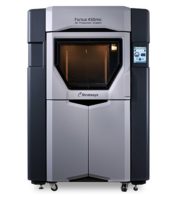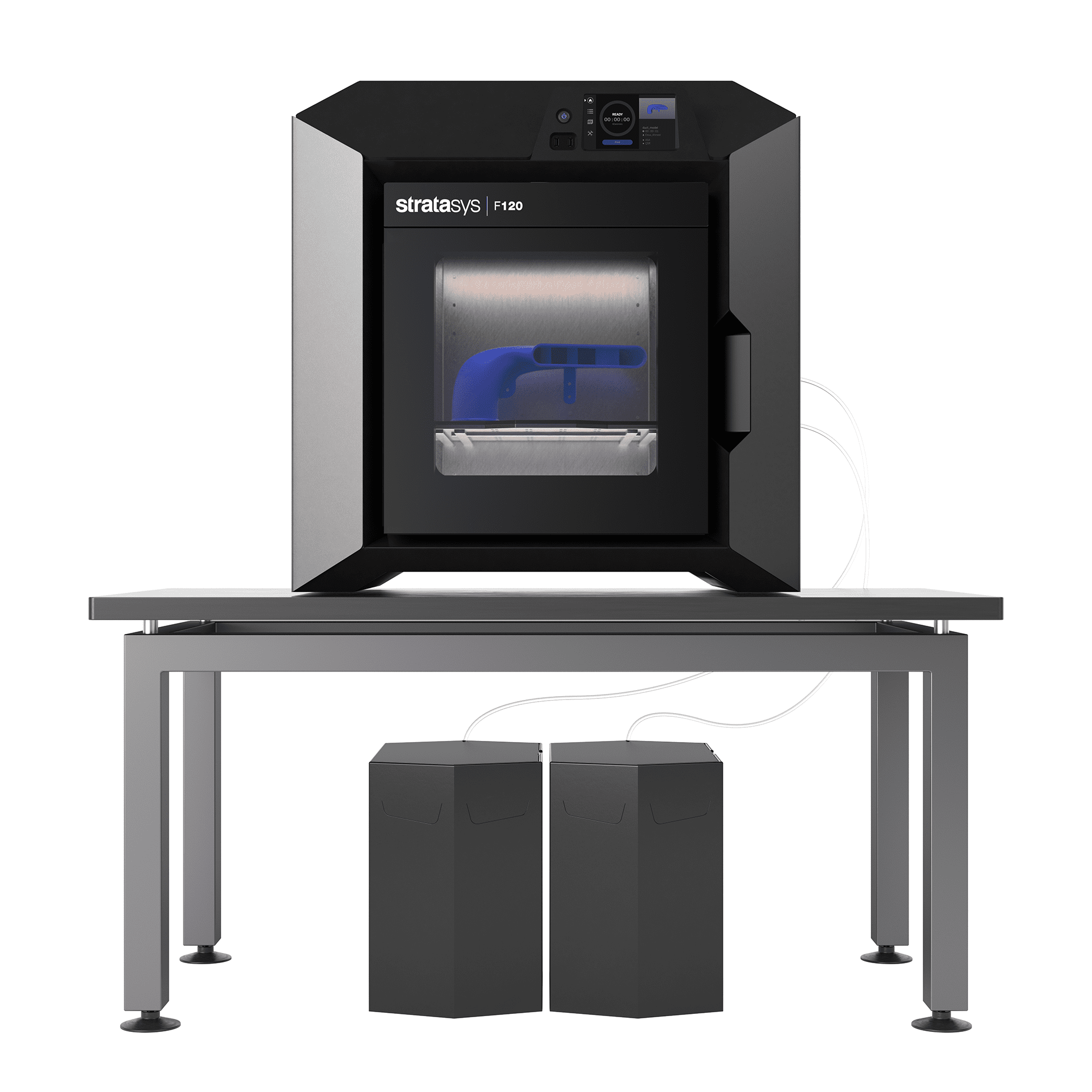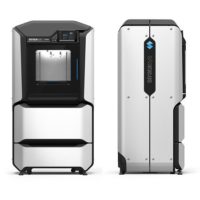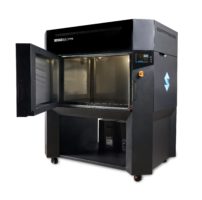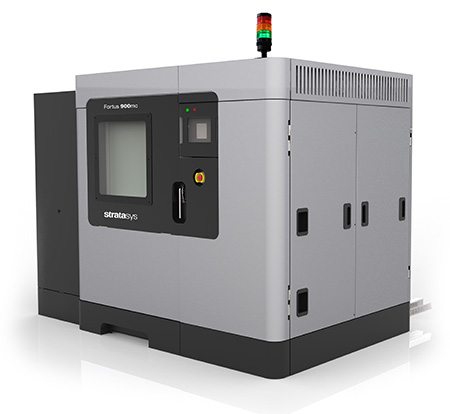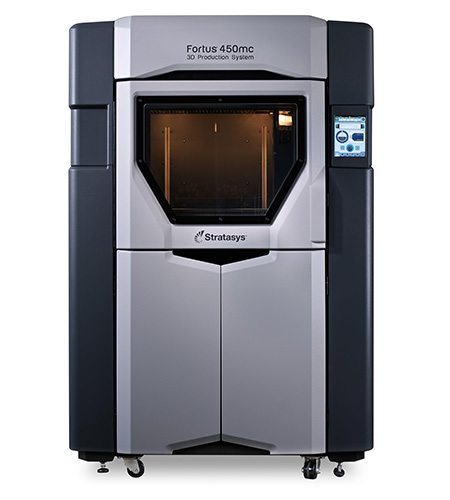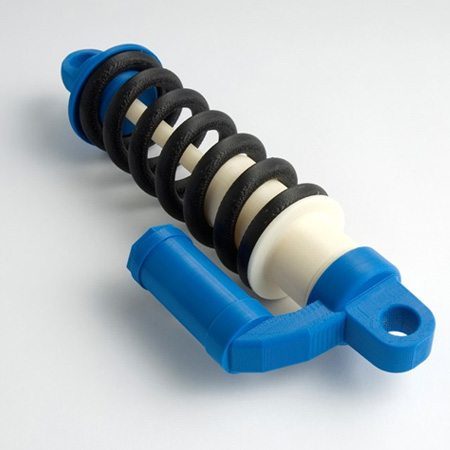
Affordable Thermoplastics Available in Six Colours
ABS-M30 is up to 25-70% stronger than standard ABS and is ideal for conceptual modeling, functional prototyping, manufacturing tools and end-use parts. Bring your product to market faster with this strong and affordable material.
Overview
ABS-M30 is a production-grade thermoplastic material made possible with FDM technology providing realistic functional tests results along with smoother parts with finer details. ABS-M30 has a greater tensile, impact, and flexural strength than standard ABS. With the ability to print in six different colours, this material is the perfect material for 3D printing concept models, moderate-requirement parts including functional prototypes, jigs, fixtures, manufacturing tooling and production parts.
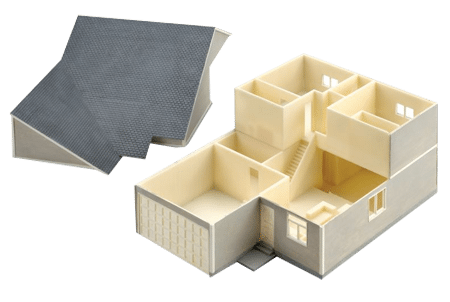
Material Performance
True production-grade thermoplastic that is durable enough to perform virtually the same as production parts.

IZOD IMPACT,
NOTCHED
160 J/m XZ axis

Heat Deflection
Temperature
96°C

Flexural
Strength
60 MPa XZ axis
48 MPa ZX axis

Tensile
Strength
31 MPa XZ axis
26 MPa ZX axis
Material Highlights
Characteristics
- Opaque
- Impact-resistant
- Strong and durable
- Dimensionally Stable
Options
- Xtend 500 material boxes for up to 400 hours of unattended build time
- Six colours, plus the option for custom colours
- Can be smoothed to achieve the gloss of injection-molded ABS
Uses
- General-purpose prototyping
- Concept models
- Functional prototypes
- Jigs and fixtures
- Production parts
Advantages
- Accurate
- Reliable functional testing with familiar ABS plastic
- Hands-free support removal
Performance Scale
![]()
![]()
![]()
![]()
Material Colours






Technical Specifications
| Mechanical Properties | Test Method | English XZ Axis | English ZX Axis | Metric XZ Axis | Metric ZX Axis |
| Tensile Strength, Yield (Type 1, 0.125”, 0.2”/min) | ASTM D638 | 4,550 psi | 3,750 psi | 31 MPa | 26 MPa |
| Tensile Strength, Ultimate (Type 1, 0.125”, 0.2”/min) | ASTM D638 | 4,650 psi | 4,050 psi | 32 MPa | 28 MPa |
| Tensile Modulus (Type 1, 0.125”, 0.2”/min) | ASTM D638 | 320,000 psi | 310,000 psi | 2,230 MPa | 2,180 MPa |
| Tensile Elongation at Break (Type 1, 0.125”, 0.2”/min) | ASTM D638 | 7% | 2% | 7% | 2% |
| Tensile Elongation at Yield (Type 1, 0.125”, 0.2”/min) | ASTM D638 | 2% | 1% | 2% | 1% |
| Flexural Strength (Method 1, 0.05”/min) | ASTM D790 | 8,700 psi | 7,000 psi | 60 MPa | 48 MPa |
| Flexural Modulus (Method 1, 0.05”/min) | ASTM D790 | 300,000 psi | 250,000 psi | 2,060 MPa | 1,760 MPa |
| Flexural Strain at Break (Method 1, 0.05”/min) | ASTM D790 | 4% | 3.5% | 4% | 3.5% |
| Mechanical Properties | Test Method | English XZ Axis | Metric XZ Axis |
| IZOD Impact, notched (Method A, 23°C) | ASTM D256 | 2.4 ft-lb/n | 128 J/m |
| IZOD Impact, un-notched (Method A, 23°C) | ASTM D256 | 5.6 ft-lb/in | 300 J/m |
| Thermal Properties | Test Method | English | Metric |
| Heat Deflection (HDT) @ 66 psi, 0.125” unannealed | ASTM D648 | 204°F | 96°C |
| Heat Deflection (HDT) @ 264 psi, 0.125″ unannealed | ASTM D648 | 180°F | 82°C |
| Vicat Softening Temperature (Rate B/50) | ASTM D1525 | 210°F | 99°C |
| Glass Transition (Tg) | DMA (SSYS) | 226°F | 108°C |
| Coefficient of Thermal Expansion (flow) | ASTM E831 | 4.90×10-05 in/in/°F | 8.82×10-05 mm/mm/°C |
| Coefficient of Thermal Expansion (xflow) | ASTM E831 | 4.70×10-05 in/in/°F | 8.46×10-05 mm/mm/°C |
| Melting Point | — | NA | NA |
| Electrical Properties | Test Method | Orientation | Value Range |
| Volume Resistivity | ASTM D257 | XZ Axis | 4.0×1015 – 3.3×1016 ohm-cm |
| Dielectric Constant | ASTM D150-98 | XZ Axis | 2.6-2.86 |
| Dissipation Factor | ASTM D150-98 | XZ Axis | 0.0048 – 0.0054 |
| Dielectric Strength | ASTM D149-09, Method A | XZ Axis | 100 V/mil |
| Dielectric Strength | ASTM D149-09, Method A | XZ Axis | 360 V/mil |
| Other | Test Method | Value |
| Specific Gravity | ASTM D792 | 1.04 |
| Flame Classification | UL94 | HB (0.09″, 2.50mm) |
| UL File Number | — | E345258 |
| Rockwell Hardness | ASTM D785 | 109.5 |
